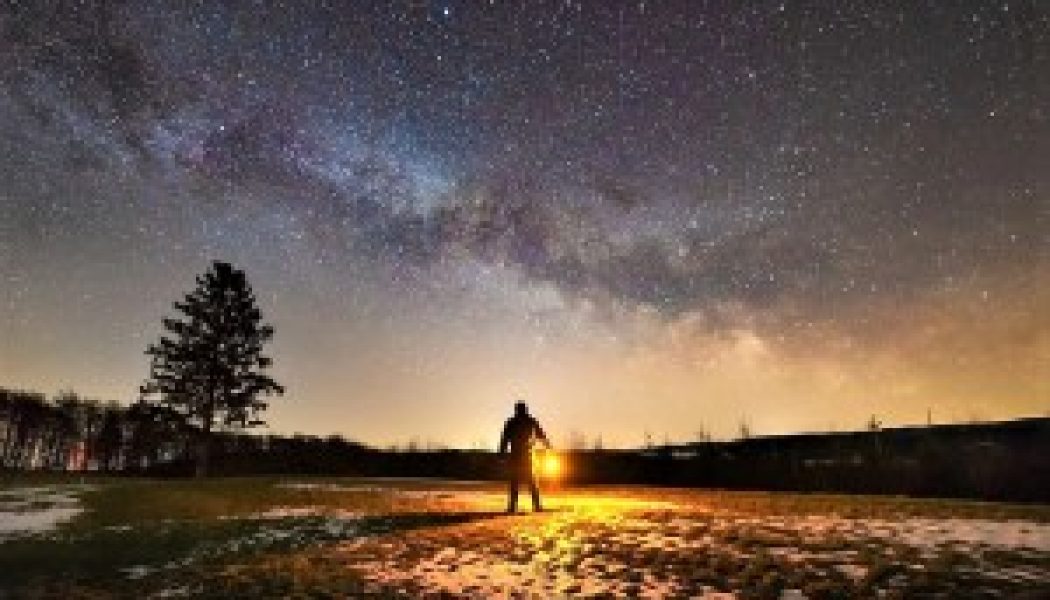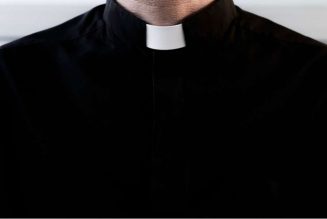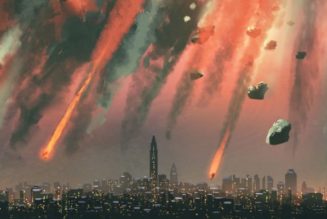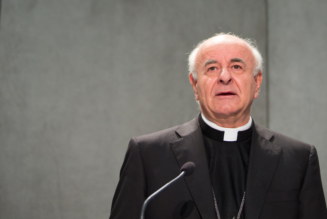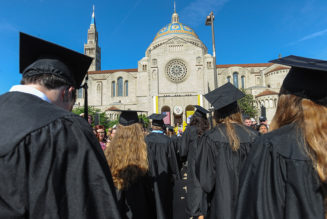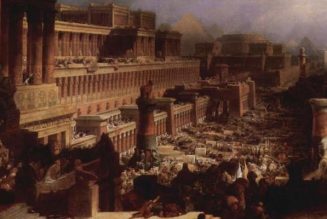Only by recognizing the divine mystery that predicates existence in the world can one reclaim his individuality. Only then will he be capable of searching for meaning generated outside the human intellect. Humans can never be gods, but they need God to live meaningful lives.
 Most students I teach believe that reality is subjective and truth is relative. This is to be expected in undergraduate college students, especially underclassmen. Not so long ago a university education served to wean students from this naivety. By the time they graduated, most students had developed critical thinking skills that reject a relativistic worldview as a matter of course. They entered the university with childish minds and, upon graduation, put childish things away.
Most students I teach believe that reality is subjective and truth is relative. This is to be expected in undergraduate college students, especially underclassmen. Not so long ago a university education served to wean students from this naivety. By the time they graduated, most students had developed critical thinking skills that reject a relativistic worldview as a matter of course. They entered the university with childish minds and, upon graduation, put childish things away.
Over the years, however, relativism, spreading like a virulent meme from brain to brain, has become ubiquitous. In an attempt to mitigate the spread, I recently agreed to spearhead an effort to re-establish a semblance of the classic liberal arts approach to general education courses at the university where I teach. Undergraduates would be required to take core classes that asked four questions: What is truth? What is justice? What is it to be human? What is a good life? These questions would be the focus of three core classes: Humanities, Natural Sciences and Technology, and Social Sciences. The instructors of the remaining general education courses were encouraged to ask the questions as well, even if peripheral to the course material.
The first class of 300+ incoming freshmen were ushered into an auditorium for orientation into the program. As director, after a welcome and a mini lecture on our liberal arts approach, I posed a question to the captive audience, “Who thinks that truth is relative?” As expected, the preponderance of the students raised their hands. To my shock, so did a good number of professors and administrators who were on hand to observe. Up to that point, I had managed, either through innocence or denial, to believe that the university, in essence, was a bastion of Logos, right reason, which allows the world to make sense. At that moment, I realized I had been horribly wrong.
The epiphany hit like a clearing blow to the gut: Logos has been overrun. Relativists are now commonplace. They have infiltrated every facet of society and can be found among blue- and white-collar workers, educators and politicians, medical doctors and engineers. They are legion.
Jesus mobbed
Jesus was hounded by crowds. They were at the Jordon River when He was baptized by John. They thronged around Him in Galilee to listen, to be fed, to be cured. They waited in anticipation to witness miracles and to be in proximity to the divine. These were not philosophers like the pre-Socratic Greek Heraclites who contemplated Logos or Plato and his Idea of the Good that could only lead to God. They were regular folks: fishermen, tax collectors, harlots, and Roman soldiers. Yet they recognized divinity when they experienced it. They were akin to fireflies drawn to long grass swaying at twilight at the banks of life-giving waters.
There was a mob when Pilate, an individual with authority, could find no crime. To avoid conflict and protect his political interests, Pilate gave into the mob as they howled for Barabbas when given the choice between setting either Jesus or Barabbas free. For Jesus they chanted, “Crucify Him.” A crowd gathered in the background as He was mercilessly scourged at the pillar, as Roman soldiers beat Him and placed a purple robe over His body, a crown of thorns on His head. They were there as He carried the cross to His crucifixion, buckled under the burden of the weight of the sins of man. Some in the crowd jeered as the He was hung upon the Cross, others watched as the soldiers cast lots for His clothes. Jesus was surrounded by crowds.
Out of the many, only a few remained faithful to Logos. They had witnessed the Truth that is beyond human understanding and accepted it on faith. Like Plato and Heraclitus before them, they took heart that there are powers greater than man. Unlike the philosophers, they had witnessed the Logos, the Word that was God. These few undermined the authority of Pharisees and Sadducees, the human rule over divine law, and because of it many were tortured to death. But the seed of Truth, born of blood, took root. Watered with the wisdom of the Hebrews and the philosophy of the Greeks, the mystery of faith coupled with the understanding of reason to produce the fruits of Western civilization.
Mystery reduced to imagination
When the mystery that is God is reduced to the imagination of mankind, there you find Nietzsche’s Übermensch, the Overman who creates meaning for himself. Here imagination reigns supreme and the mysterious divine is buried under hubris. The individual imposes meaning on a meaningless world. The will to power usurps the arete of the Greeks, the Homeric challenge to expend one’s full human potential and, later, Aristotle’s moral excellence of doing the right thing at the right time for the right reason. There is no right reason to be found in Nietzsche’s Will to Power, only reason enslaved by passions spawned in an imagination seeking to impose meaning on a void. This is not excellence but delusion. The Will to Power does not forge heroes but, as we shall see, hollows men into empty shells.
If, according to the Nietzschean maxim, “there are no truths, only interpretations,” then the dictum itself cannot be true and truth is no longer relative but nonexistent. Nevertheless, it is left to the individual to impose meaning on a meaningless world rather than to discover it in a universe brimming with mystery. The clues to that mystery, handed down through the ages, are annulled; each man becomes a god of a deserted desert island. Nietzsche helped set into motion forces that would annihilate Western values. This force took root first in our universities and now in society at large.
When meaning is produced absent from a foundational truth that transcends it, a chimera is born. Like all fantasy, it is inherently unstable and vulnerable to the whims of the next desire in a never-ending cycle of desires. This would-be god is impotent. Stripped of mystery, meaningless meaning traps the creator in a hamster wheel of despair. The mind, always second-guessing, always moving, always creating and destroying meaningless meanings, though it moves, is paralyzed. T.S. Eliot captures this brilliantly in “The Hollow Men”:
Our dried voices, when
We whisper together
Are quiet and meaningless
As wind in dry grass
Or rats’ feet over broken glass
In our dry cellar
Shape without form, shade without colour,
Paralysed force, gesture without motion…
The dried voices are those bouncing in the static hiss in the mind of homo deus, the god man. This is meaningless meaning is nihilism, that ultimately believes in nothing at all. Can it get any worse?
Less than nothing
Nietzsche was a radical individualist beholden to neither god nor tradition. The Woke movement claims identity politics as a foundational truth. In doing so, they scorn the individual but retain the Nietzschean defiance of religion and tradition. The Woke provide “safe spaces” where individuals are allowed to relinquish the unbearable responsibility of incessantly generating meaningless meaning. In giving over this responsibility, however, they sacrifice individuality. Once they were god-men terribly alone generating meaning out of nothing in a kind of tragic beauty. Now they are reduced to skin color, gender, and an intersectionality where aspects of one’s social and political identity serve to create modes of discrimination or privilege. Here the individual is subsumed by the accidents of birth. The individual is assigned to a crowd and erased.
Nietzsche is considered a founder of existentialism. For the existentialist, the socioeconomic circumstance into which one is born, the century and place into which one is born, the color of one’s skin, and gender are beyond the individual’s control. He is thrown into the world. As he matures, free will becomes of paramount importance. When thrown unjustly into prison, for example, he is free to choose what to do next: sit quietly, break out, join a prison gang, go on a hunger strike, study philosophy, etc. Because of his ability to think freely, the individual can transcend circumstance through acts of free will.
In the world of the Woke, there are only oppressors and victims. The goal is to merge both groups, oppressors and victims, into a single entity that will inhabit a mundane world where transcendence is but a shadow of a memory. This is the triumph of the egalitarianism championed by Neo-Marxists, an absolute equality free from God, the individual, and consequently, the pursuit of human excellence. This is Eliot’s “paralyzed force,” where Nietzsche’s Will to Power becomes a motionless gesture, a statue at the back of the Museum of Our Shame. Humanity is reduced to shape without form.
These prison bars too shall pass
Either way, it seems—the tragic hero who begets meaningless meaning like Sisyphus pushing the rock or the godless world of the Woke where the individual is sacrificed on the altar of a fallow equality—we are doomed. Even in the darkest night, however, hope sparks. Poets such as Rilke light the way:
“The Panther”
His vision, from the constantly passing bars,
has grown so weary that it cannot hold
anything else. It seems to him there are
a thousand bars; and behind the bars, no world.As he paces in cramped circles, over and over,
the movement of his powerful soft strides
is like a ritual dance around a center
in which a mighty will stands paralyzed.Only at times, the curtain of the pupils
lifts, quietly—An image enters in,
rushes down through the tensed, arrested muscles,
plunges into the heart and is gone.
The thousand prison-bars of meaningless meanings guarded by the Woke have made many so weary they cannot focus on anything but the cage. We pace in circles to remember something that was forgotten, the true freedom that can only be found in communion with a mystery paralyzed in the Medusa gaze of modernity. It is the human spirit, not the Holy One, that freezes as we stare into the mirror. Homo deus worships itself in incestuous idolatry.
At times, though, we remember the grandeur once celebrated, the pursuit of excellence that leads to communion with the transcendent. Here the image is made clear: We are made in the image of God, not vice versa. This image resonates in every living heart but has been vacated from far too many minds. Only by recognizing the divine mystery that predicates existence in the world can one reclaim his individuality. Only then will we be capable of searching for meaning generated outside the human intellect. Humans can never be gods, but they need God to live meaningful lives.
Good men and women of all colors, armed with the wisdom of the past, must answer the call for the sake of the young and those yet to be born. The burden is upon us. We can no longer be silent. It is simple, really. What is truth? What is justice? What is it to be human? What is a good life? If these questions regain centrality in the classroom and beyond, they can lead to a recognition of the divine spark in the minds of the young. To accomplish this, however, students and teachers alike must be versed in the wisdom of Western discourse. Christian values are the center that holds this tradition together. These values are our birthright and our charge. If they appear paralyzed at the moment, do not be afraid. We must keep the faith. Faith is a vaccine against the disease that ails our society.
The Imaginative Conservative applies the principle of appreciation to the discussion of culture and politics—we approach dialogue with magnanimity rather than with mere civility. Will you help us remain a refreshing oasis in the increasingly contentious arena of modern discourse? Please consider donating now.
The featured image is courtesy of Pixabay and has been brightened slightly for clarity.
